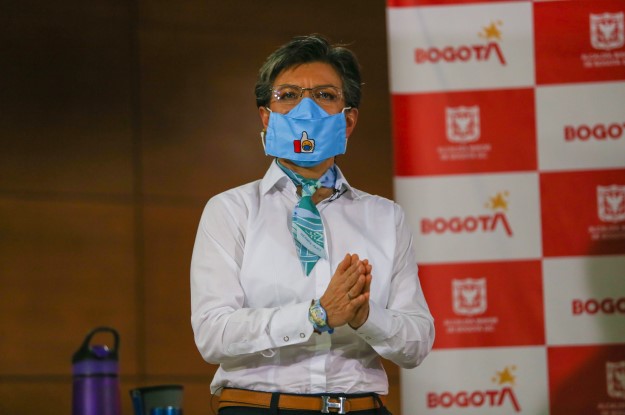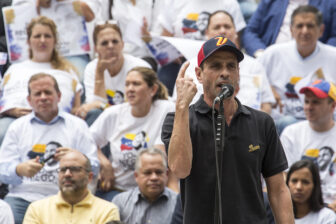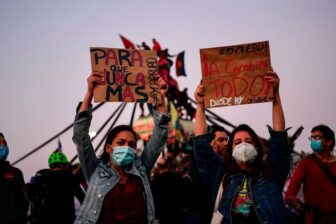In Bogotá, as COVID-19 infection rates climbed, the city’s mayor sought advice from Buenos Aires and adopted a strategy to isolate its infected residents in hotel rooms. On opposite sides of the continent, Belo Horizonte and Quito worked together to adapt funeral processes and cemetery access. Montevideo and Mexico City, São Paulo and Guayaquil, and many more, followed the example set by cities on entirely different continents — Paris, Barcelona, Seoul and Montreal — and established formal channels for open dialogue among themselves.
Through their collaborations, cities are demonstrating that global multilateralism will have a set of new, unlikely leaders in 2021.
Populism and the pandemic have prompted countries to choose nationalist priorities, placing multilateral collaboration on the backburner everywhere from the U.S. to India, Brazil and China. However, global cooperation is far from gone. Instead, mayors and local authorities — facing COVID-19’s multiple health, economic and social crises up close — are emerging as guiding forces in international affairs to address the pandemic and much more.
Coronavirus is imbuing Latin America’s cities with a new legitimacy in the field of international relations. COVID-19 has placed domestic priorities in first place for national governments across the planet, amplifying nationalist rhetoric, isolationist ideas and even science denialism. By contrast, local authorities in some of the region’s main cities have asserted their own autonomy — at times even in explicit defiance of their national governments. Cities like Mexico City, Buenos Aires, Medellín, Bogota, São Paulo, Rio de Janeiro, Belo Horizonte and Cuenca are deploying blunt internationalization strategies, forged by a new generation of local leaders and based on robust and diverse alliances that prioritize knowledge and innovation.
In doing so, local governments have offered themselves a leading role in international relations, collectively fostering their individual attempts to find effective solutions to the challenges posed by the pandemic. Response from local authorities in cities severely impacted by COVID-19 has been critical for residents and has forced leadership to engage with a range of issues that, at first, did not seem directly linked to the pandemic — such as urban mobility and immigration, cleanliness of public spaces, teleworking, distance learning and social services for vulnerable populations. What is now known as sub-national or municipal diplomacy used to be a reserved domain for big cities and their high-profile mayors. Today, engaging in international affairs has become a necessity during COVID-19, and cities of all sizes and types are rising to the occasion.
Many cities have even surpassed the regular limits of this type of collaboration. Where they may have simply shared their experiences with one another in the past, on this occasion their international activism has instead demonstrated a level of sophistication that has rapidly transformed into a capacity to problem-solve together and create collective action plans that are capable of accelerating their response in record timeframes.
From the pandemic’s outset, virtual meetings between municipal and regional authorities have proliferated, and shared solutions have multiplied in a similar way. Through new forums and platforms, municipal leaders all over the planet have learned together how to deal with the pandemic’s unique challenges to urban areas, even as their own national governments turned away from international cooperation.
And in Latin America, local leaders are gaining global attention due to their initiatives. On October 29, the World Health Organization’s (WHO) director-general praised the work of local governments in Bogotá, Buenos Aires and Lima to counter the pandemic. In particular, it singled out Bogotá’s expansion of safe public transportation on foot and by bicycle, and Lima’s strengthening of its transport infrastructure with 50km of newly-reinforced bicycle lanes and public parks. It also lauded Buenos Aires’s efforts in Villa 20, an informal urban settlement which is home to more than 30,000 residents, where the government intervened to ensure public sanitation, food security, access to medical and emergency resources — resulting in lower rates of infection than in other neighborhoods.
City to city cooperation has proven so effective that it has even spurred cities to look beyond their immediate responses to the current health crisis. Many are now preparing responses to the socioeconomic challenges that they know will continue long after the pandemic has disappeared. The reinforced link between science, innovation and technological development is proving valuable in cities including Recife, Medellín, Quito, Salvador and Guadalajara, whose recovery strategies include not so obvious topics like digitalization, museums, circular economies and food security. Between them, these cities are finding opportunities to redefine their heftiest economic sectors, like tourism, while moving towards more resilient, low-carbon models of urbanization. And innovation has exceeded expectations: In a post-pandemic world, Medellin’s recovery will be streamlined with its climate change agenda, while Mexico City prepares to launch its most ambitious employment plan in history.
Reimagining the city through a resilience lens has offered Latin American local governments both the challenge and opportunity to tackle pre-existing social problems that have been exacerbated by the pandemic. The coronavirus is giving Latin American mayors a springboard to fast track the long-awaited transition into more compact cities, ensuring wider access to basic services like affordable housing, reliable public health, free education and decent employment. Local governments in the region are suddenly shifting to alternative urban mobility initiatives that prioritize pedestrians, non-polluting vehicles and safe public spaces in a way that was unimaginable only a few months ago. In Bogotá, for example, the recently-unveiled Territorial Organization Plan mimics Paris’s ground-breaking ‘15-minute city’, aiming to create self-sufficient communities where public spaces like parks, amenities like grocery stores and sports facilities, and essential services like schools and health centers are always nearby for residents and easily accessible by foot, bicycle or a short public transport ride.
COVID-19 has shown that treating urban challenges in an isolated manner is no longer a viable option. Platforms like the Global Resilient Cities Network, or ICLEI, bring together mayors, international organizations, philanthropic foundations, private companies and civil society organizations, working together to put innovative solutions newly within reach for local governmental authorities. And the menu of solutions is exponentially multiplying.
The pandemic has shown that traditional nation-state diplomacy, based in geopolitics and national interest, has not been able to provide effective responses to the needs of families, youth and the elderly who need concrete and urgent solutions in their day-to-day existence. Local governance, anchored in its immediate surroundings and its knowledge of the pressing needs of its populations, has an unparalleled comparative advantage in seeking and finding globally applicable solutions. Humanity is at its most capable when it is collaborative, and the pandemic has only emphasized the importance of forging alliances, both regionally and globally, between cities in partnership with other non-governmental actors from the private sector, academia, civil society and the media.
This moment, although not without its tragedies, presents a promising opportunity to rethink the world we live in, and how we will live in it from here onwards. Cities and local authorities are getting ready to become the forerunners in the quest for a better future of our now mostly-urban planet.
—
Zapata Garesché is global director for strategic partnerships and head of Latin America and the Caribbean at the Resilient Cities Network. He is a member of the editorial board of Americas Quarterly. Fernández de Losada is director of the Global Cities Program at the Barcelona Center for International Affairs (CIDOB). Llamas Sánchez is councilor on Madrid’s city council, and a professor at Carlos III University of Madrid. De Oliveira Perpetuo is the secretary general of ICLEI – Local Governments for Sustainability, South America. The authors are founding partners of PHARE, Territorios Globales: www.phare-global.org







